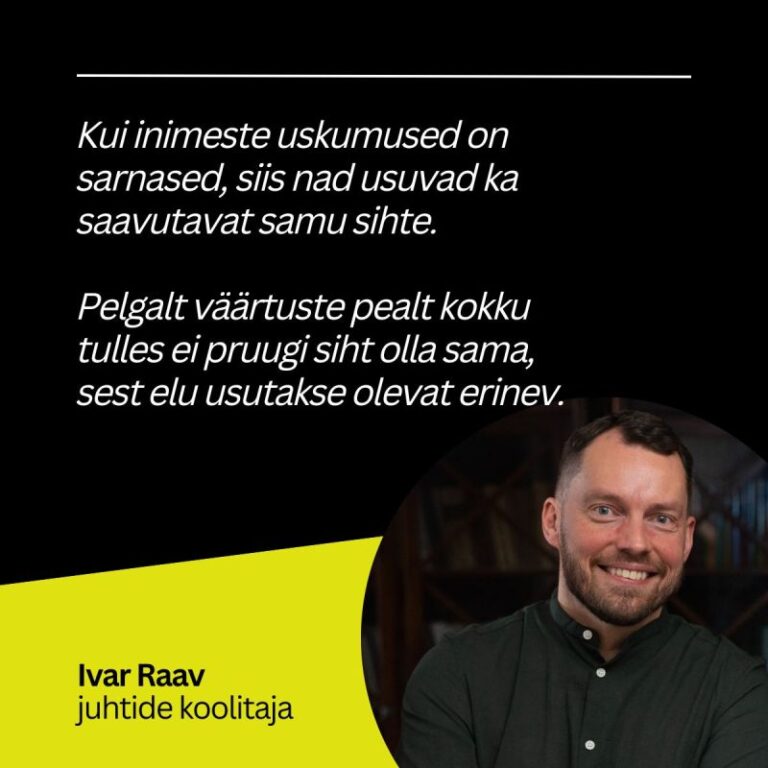Recruiting values rather than skills is no longer new for many.
But have you thought about what is underneath the values, or what the values are based on.
These are beliefs, or all the things we think are true in life.
Most of our beliefs are formed in the first years of life by observing other people.
To put it simply, beliefs are a simple sentence: “I see what I believe.”
Beliefs influence our behaviour even (and especially) when we are not aware of them.
However, the point of my post is not to talk about the issue of beliefs, but to think about it through the context of recruitment.
We formulate values in organisations, leadership values, assess value-based behaviour.
But unfortunately, there are often situations where values are agreed but people behave in a way that is contrary to them, or have a very different understanding of them and do different things.
This is because of beliefs.
As today’s 116.
“Leadership without Leadership” podcast, we will take some time to discuss this topic, so here are some thoughts on how to do belief-based recruitment instead of values-based recruitment.
Some questions for the next job interview, where both parties could ask each other these questions, adjusting the wording accordingly.
After all, a job interview is always a two-way street!
– What motivates you to do your job well?
– How do you define success?
– Please tell a story where you stuck to your principles?
What are these deeper principles?
– What’s your life motto?
Why is that?
– What is competition and rivalry?
– How do you see the world?
– How do you prioritise yourself, family, work, relationships and why?
Can you give an example where you have had to make choices based on this priority?
– What ethical dilemmas have emerged recently and how have they been resolved?
– What does good/half mean?
– What is affiliation?
– What is inclusion?
All these questions give a very good insight into the deeper causes of a person’s behaviour, i.e. what influences their values.
We often perceive the gap at the level of deeper beliefs with a gut feeling.
So let’s trust it!
And, as mentioned, the job applicant should also ask them about the organisation or the manager they are potentially going to work with.
Conflicts generally arise on the basis of beliefs anyway, because behaviour comes from thoughts, emotions, feelings, values.
And values in turn come from beliefs.
If people have similar beliefs, they believe they will achieve the same goals in life.
If beliefs are very different, we may come together on the basis of behaviour and values, but start pulling the cart in different directions.
What other belief-mapping recruitment questions come to mind?

